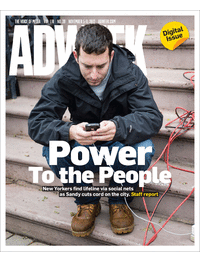Jimmy Wales: Make Your Brands Authentic
What's your advice to advertisers wanting to tap into social media?
There are a lot of lessons coming out of Wikia. It's where we're seeing communities being built around brands that are very intense. In my presentation, I'm going to talk about the Transformers community. It was created in anticipation of the movie. The community went completely bonkers over this. They built some 6,000 pages of content about the movie, the toys, every aspect of the franchise. What you're seeing is, the traffic continues to grow even though the movie has come and gone. The franchise is benefiting from this kind of community engagement. For brands it takes authenticity that you can't fake. What you have to recognize is that if you're creating something that's good -- a good product or user experience -- you're going to have people who really get into it. There are communities out there and they don't mind dealing with the companies creating that product. What they don't want is to be pushed around. They don't want a top-down approach. They don't want you directly controlling your activity. They want to be heard and actively engaged.
Who's doing a good job of this?
J.J. Abrams and Lost. They've been really good with seriously engaging their audience of hard-core fans, and turning them into evangelists who build things for the ordinary fans. Outside of the entertainment industry, I don't know who is doing really innovative work yet.
Why is Wikia working on search?
We've seen a real concentration in search. Something like the top three firms handle 90 percent of search queries. It's proprietary; it's a black box. The search engines have taught us that it's a mathematical formula and it's neutral because it's an algorithm. There's a distancing from this being editorial commentary, but it is. If you search for Thomas Jefferson, Google will tell you these are the 10 most important things. That's a completely non-transparent process. We have no idea how they're compiling that. In fact, they go to great lengths to disguise how it is done. In contrast, if you go to Wikipedia and you want to know why it is the way it is, you can go to the history page and the discussion pages. You can contact the authors and ask them questions. It's all done in public. My idea is to do that and make search as transparent and community controlled.
Does advertising need to change?
There are things in advertising that need to change. People need to think about more complicated and involved user engagement. We're moving from an era of broadcast media to participatory media. It's the same in advertising. Word of mouth is far more important than ever before. Influencing the passionate consumers is more important than before. In this environment, it's getting harder to convince people with a mass blast of your brand image all the time. What's powerful is to engage the early adopters and influencers who will go out in a peer-to-peer way to sell your brand. It's easier to get called on your BS now. There's a cute art project using the Wikipedia "citation needed" notation. There are some people in New York who are going around on billboards putting on "citation needed" stickers. Consumers can talk back now. You have to think twice about making some outrageous hyperbolic claim. Maybe it never worked, but it really doesn't work now.















